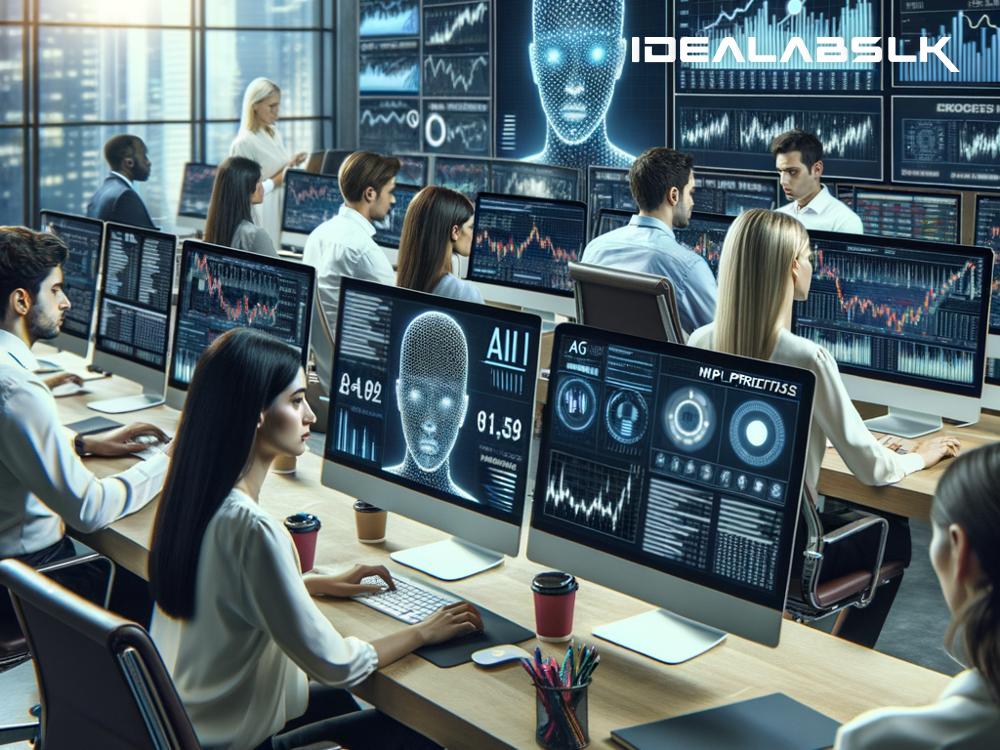Title: AI in Trading: Revolutionizing the Financial Market with Predictive Models
Welcome to the fascinating world of Artificial Intelligence (AI) and its groundbreaking impact on trading! The financial market, known for its volatility and complexity, has always been a challenging arena for investors. However, the advent of AI, particularly through predictive models, is transforming trading in ways we never imagined. In this blog, let’s unwrap this revolution in simple English.
What is AI in Trading?
At its core, AI in trading involves using computer systems and algorithms to analyze data, predict market trends, and make trading decisions. These arenously accurate systems can sift through massive amounts of financial data in seconds—something human traders can hardly achieve in days or weeks.
The Magic of Predictive Models
Predictive models are at the heart of AI trading. These models are trained on historical data to forecast future market movements. Think of it as a weather forecast, but instead of predicting rain or sunshine, these models predict market ups and downs. They use various factors, including economic indicators, company performance metrics, and even global events, to make these predictions.
How AI is Changing the Game
-
Speed and Efficiency: AI can process and analyze data at a speed no human can match. This means traders can make quicker, more informed decisions, a critical advantage in a market where seconds can mean millions.
-
Risk Management: Predictive models enable better risk assessment by forecasting potential downturns and volatile market phases. It's like having a crystal ball, albeit a statistically driven one, that helps traders maneuver through riskier investments more cautiously.
-
Accessibility: AI has democratized trading. Now, not only Wall Street giants but also regular individuals can leverage sophisticated AI tools for personal trading. This accessibility is changing the face of who is trading.
-
Finding Hidden Patterns: AI excels at identifying complex patterns in data that human traders might overlook. It can spot correlations between seemingly unrelated global events and market movements, giving traders unique insights and an edge in decision-making.
Challenges and Considerations
However, AI in trading isn’t without its challenges. The quality of predictions depends largely on the data fed into algorithms. Garbage in, garbage out, as they say. Additionally, markets are influenced by human emotions and irrational behaviors, which are difficult for AI to predict accurately.
Moreover, there’s an ongoing debate about the ethical implications of AI trading. The fear is that it could lead to market manipulation, unfair advantages, and increased volatility. Also, the shift towards AI-driven trading raises concerns about job losses in traditional trading roles.
Despite these challenges, the potential benefits of AI in trading are too significant to ignore. The key here is finding a balance between leveraging AI for its advantages while being mindful of its limitations and ethical considerations.
Real-World Examples
Several hedge funds and financial institutions are already harnessing the power of AI for trading. Firms like Renaissance Technologies and Two Sigma have invested heavily in AI, leading to significant returns. Their success stories underline the transformative potential of AI in trading.
The Future of AI in Trading
Looking ahead, AI is set to become even more ingrained in the financial market. As algorithms become more refined and data more accessible, the accuracy of predictive models will improve. This future promises even greater efficiencies, smarter risk management, and potentially more level playing fields in markets across the globe.
However, the key to a positive future with AI in trading lies in continuous learning, ethical AI practices, and robust regulatory frameworks. It’s an exciting journey ahead, one that is sure to redefine the essence of trading.
In Conclusion
AI in trading, with its predictive models, is undeniably transforming the financial market. It brings unparalleled speed, efficiency, and insight, turning the volatile world of trading into a landscape rich with opportunity. However, as we embrace this revolution, it’s vital to tread cautiously, considering the ethical, economic, and social implications of AI.
The future of trading with AI presents a promising horizon, filled with innovations that could make the market more accessible, fair, and profitable for all. As we stand on the brink of this new era, the fusion of finance and technology has never been more exciting, signaling a paradigm shift in how we perceive and engage with the financial market.
So, whether you're a seasoned trader or a curious newcomer, AI in trading is a realm worth exploring, promising a future where data-driven decisions lead the way in the quest for financial success.

